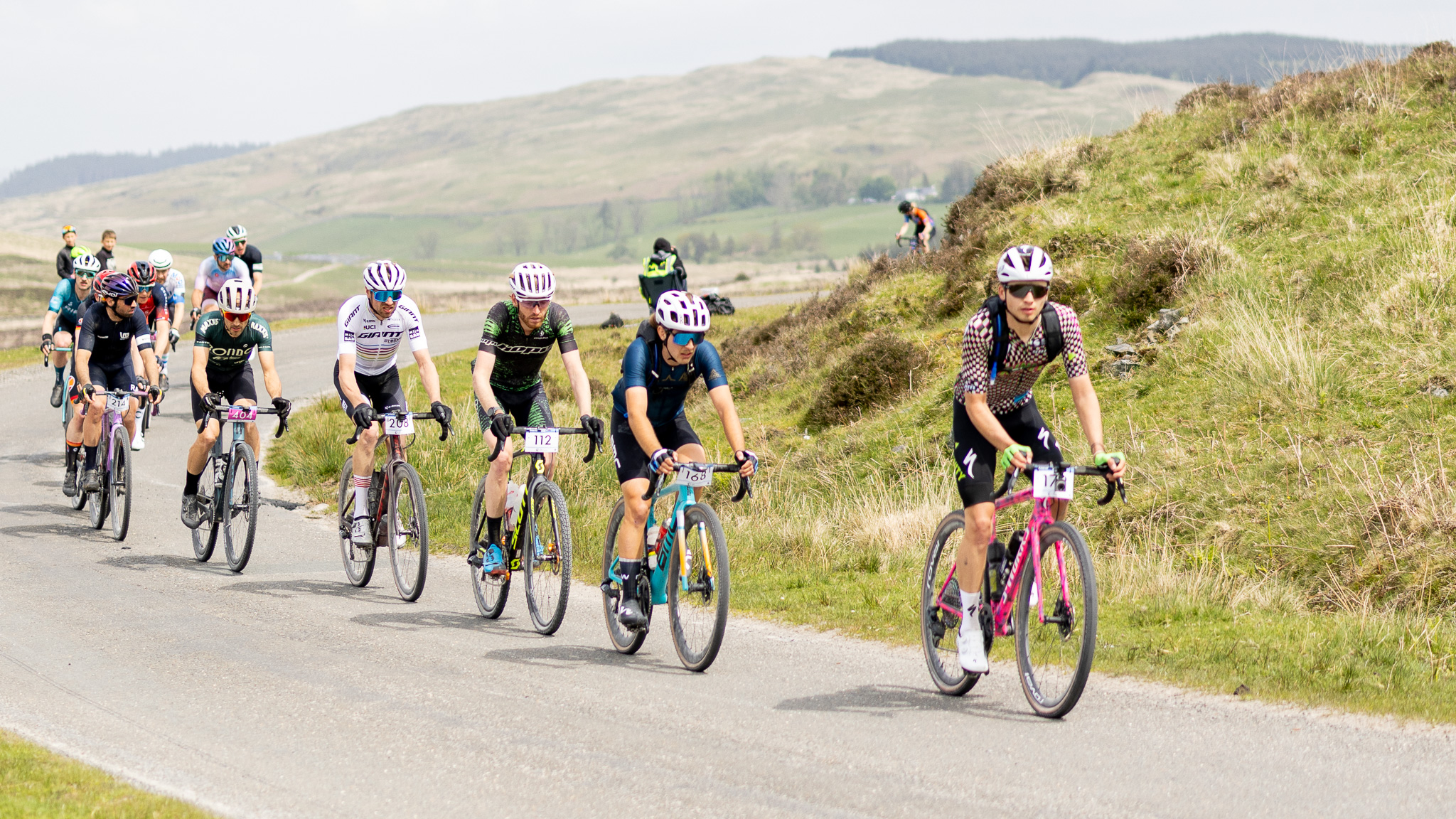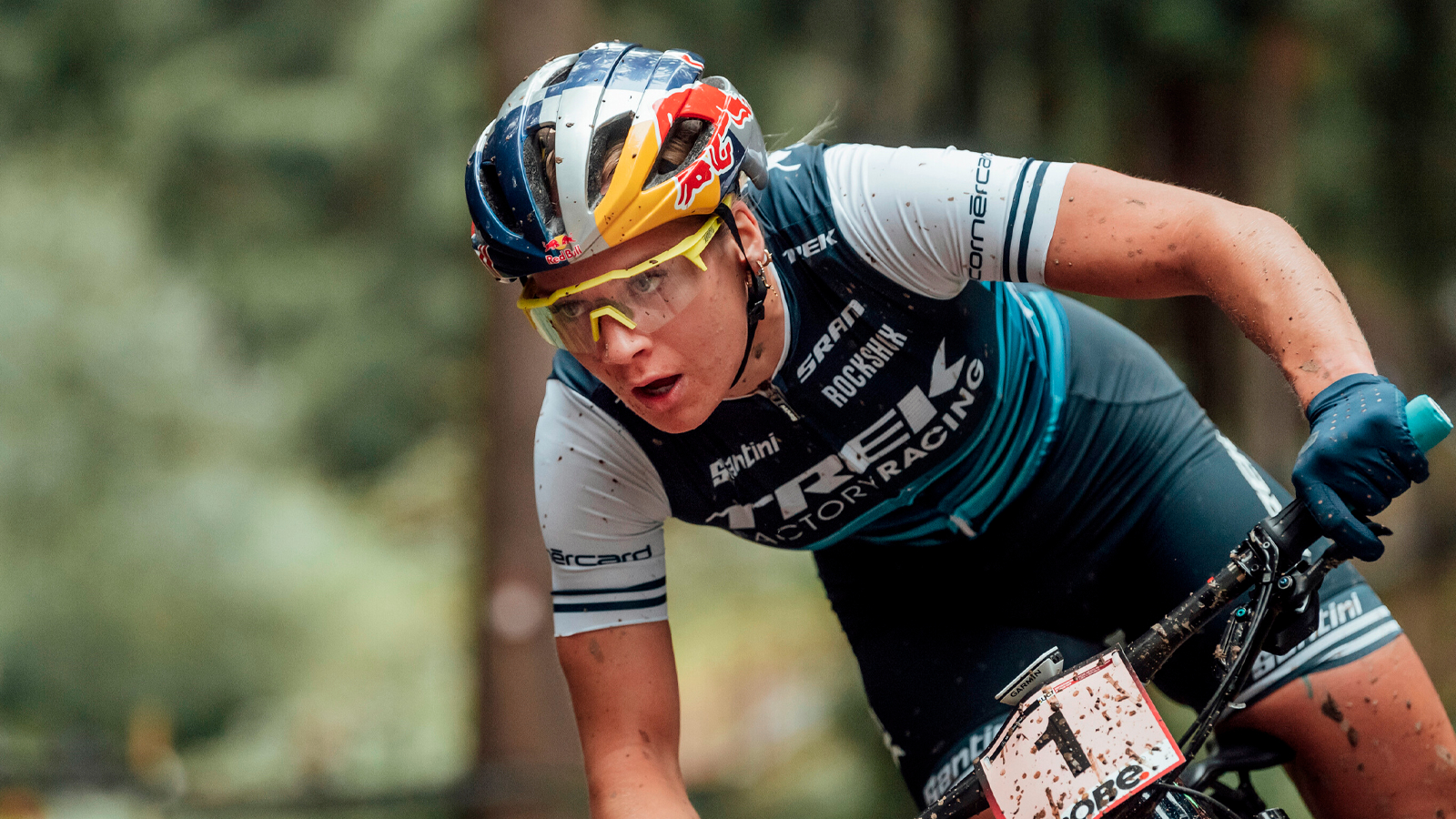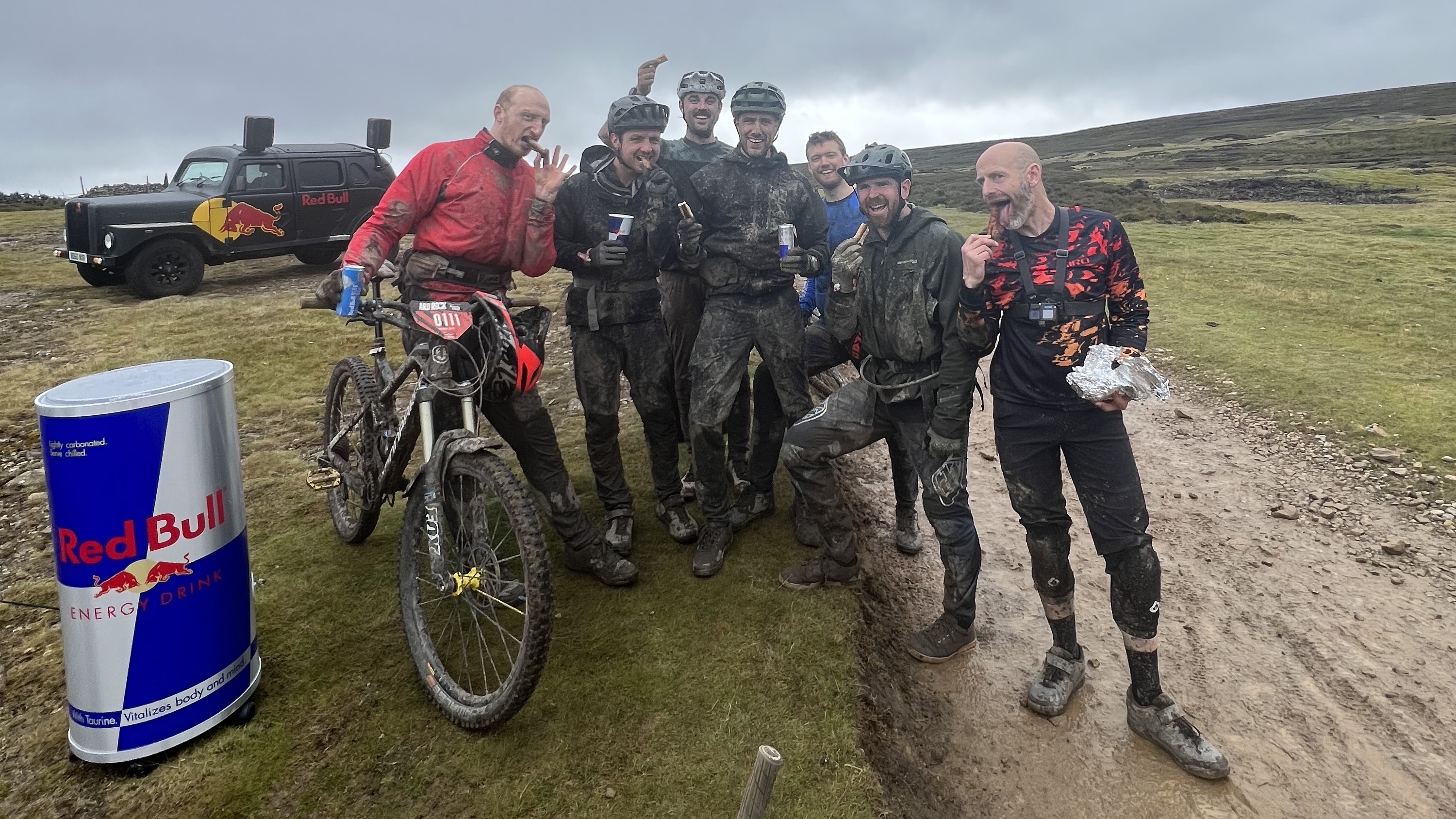
It makes me furious that I’m having to write this, but what happened to a good friend of mine last weekend shouldn’t be left to slide. Not least because she’s had the bravery to stand up and confront a blatant example of a serious problem in sport – particularly for female riders.
Amy Henchoz is an Elite level XCO racer and previous XCM national champion who’s represented the UK at the XCM World Championships. Last Saturday was arguably her biggest result to date though, taking tenth place in Elite Women at the UCI gravel race – the Gralloch. She was particularly proud as she broke free from a group of riders with two other racers with 15km to go before winning the final sprint. While she races elite, and trains and prepares as diligently and determinedly as a pro athlete, like most female racers she’s really a privateer. A racer who puts up with a huge amount – including inherent inequality to pursue her passion while also working full-time. So results like this matter to help her justify support from sponsors who help keep her racing. They're also precious payback for all that time she’s suffering on the bike through winter or doing interval sprints when she could just be riding for fun. And at the finish line everything seemed fine. It had been a good fair fight amongst friends and Amy headed away from the event elated, ready to ride an enduro the next day for some R&R.

Except as she grabbed a pizza and prepared to set up camp that evening she started getting messages. Angry, abusive social media messages from someone seemingly connected to one of the girls she’d out-sprinted. Message after message questioning her attitude, her behavior and descending deeper and deeper into personal attacks – all because the person who’d lost missed out on a potential World Championships qualifying place, which she somehow deserved more than Amy. That glow of a job well done and a fight well won collapsed immediately into a cold, lonely, sleepless night questioning whether she had actually wronged someone or could have done things differently. Sure it might be frustrating if she took a qualifying slot for a World Championships she won’t be attending. But the other racer hadn’t even said anything to her on the run-in, or as Amy says, she’d have found it hard to say no to gifting her the place – even if it went against everything she trains and races so hard for.
The bottom line is that a fantastic experience has been potentially tainted forever. As the race wasn't under British Cycling control, the abuser doesn’t have a British Cycling license so there’s no official course of redress either.

Sticks and stones
I wish Amy’s case was a rare one, but the depressing truth is that it’s far from unusual at every level from world’s best to first ride wobblers. I read a post last week from one of the best ultra-distance cyclists in the world explaining how she’d not started a planned adventure because she’s still struggling from repeated body image-related abuse. Some of it deliberately targeted, but some of it casually accidental in the form of people presuming she’s riding to lose weight. The truth is that skin and bones don’t get you far through multi-thousand-mile, self-supported adventures through the wildest parts of the world.
You hear it in ‘banter’ at races and just on the trail too. Spectators commenting on how others look or ride in a way that might be hilarious to their mates, but could be massively damaging to the confidence of that rider. Damaging enough to stop them riding completely and go and find a more supportive sport. Because let’s face it, riding off-road is hard enough physically and psychologically without being judged by total strangers. People who have no idea of your backstory, in terms of experience, injury, confidence or so many other things that can make biking even harder. It's a sad fact that if we put "hate" in the title of a feature it usually does better than "love" in terms of views too.
Even seemingly helpful encouragement can be dangerous too. Peer pressure pushing riders to exceed safe limits they’d sensibly stopped at. In fact, one prominent mountain bike YouTuber gave up riding altogether a couple of years ago as he couldn’t handle the culture of dangerous over-encouragement any more.
Online abuse of riders is all too common too, where cowards hurl hate from behind false names like a nest of cycling incels. Or just make causal comments, assumptions or assertions that cause genuine emotional injuries without even thinking or caring. Because while sticks and stones will break your bones, names can actually hurt your mental health far more and with longer-lasting consequences.

Correctile dysfunction
And I’m not trying to paint myself whiter than white here by any means. My job means I’d probably get a medal for mansplaining to any blokes or lasses who I think I can ‘help’ with bike tech or setup. I love ‘Hecklers Wood’ at Ard Rock Enduro whether I’m riding or watching. Even though the howling and baying encouragement and cheers for heroic wipeouts might be more terrifying than the actual root and rock fest for some. I’ve also repeatedly found myself explaining that I didn’t mean to use the word ‘luv’ in a derogatory sense, when riding outside of northern England [luv is used as a friendly way of addressing someone in some northern parts of the UK]. I’m sure there are other gaffs I’ve not even registered as well, for which I apologize deeply.
The perpetually impatient, insulting riding group I'm a member of would probably seem a cauldron of toxic taunting for anyone who overheard us too. But that’s how we like our Thursday night thrashes and we ride better because of it. Plus, the trash-talking on the trail is balanced by the fact that off-the-bike, they’re the most supportive friendship group I’ve ever been part of.
And I guess that’s the bottom line here. For the most part, mountain biking and gravel biking is a far more supportive, friendly environment than most sports I’ve been in. Maybe because so many of us are misfits and/or refugees from school team picks, or other more formal win-or-fail recreations. It only takes a tiny minority to turn things sour though. So before you write a comment that could be taken the wrong way or target someone you don’t know with ‘banter’, stop and think. Because what you do next could be as pivotal to that person as a serious crash in terms of framing how they see riding. And if you see it happening to someone else or it happens to you call it out as bravely as Amy and others have.
As I said at the start there’s enough to cope with when biking off-road without feeling the very community you’re part of is the biggest obstacle to overcome.







